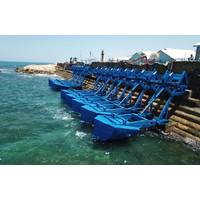Battery trial to put storage on the front foot
A new Canberra-based storage trial will examine whether lithium-ion batteries could enhance electricity grids and increase the use of renewable energy.
Australian Renewable Energy Agency (ARENA) CEO Ivor Frischknecht said IT Power (ITP) would carry out the trial, supported by $450,000 of ARENA funding.
“ITP will analyse the performance of six major lithium-ion battery brands, comparing them to existing and advanced lead-acid battery technologies to investigate how they could operate in large and small electricity grids,” Mr Frischknecht said.
“Storage is important for allowing more renewable energy to be used in Australia on-grid and off-grid by smoothing out energy supply.
“Power companies could, for example, consider renewable energy based mini-grids with storage as an alternative to maintaining sections of the main grid that currently run at a loss.”
Mr Frischknecht said the testing in a controlled environment would result in a greater understanding of various storage technologies and how they can best be adopted as they begin to compete with lead-acid batteries on cost and reliability.
“Lithium-ion batteries are increasingly used in electric vehicles and consumer electronics, giving them great potential for future cost reductions compared to other storage technologies,” Mr Frischknecht said.
“ITP is building a test facility at the Canberra Institute of Technology to put each battery through its paces with repeated charge and discharge cycles simulating real-world applications and Australian environmental conditions.
“The findings will be shared broadly across the energy industry with investors, power companies and researchers in line with ARENA’s commitment to knowledge sharing.
ITP Managing Director Simon Troman said conventional battery storage had been used to optimise the design of remote power systems for many years.
“Recent reductions in the cost of lithium-ion batteries coupled with potentially significant performance advantages warrant serious testing of this new storage option,” Mr Troman said.
The trial will proceed for three years and is scheduled for completion in June 2018.









